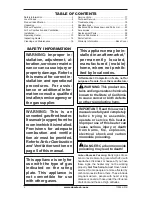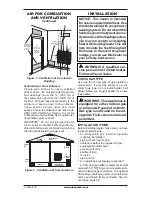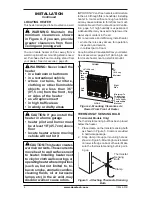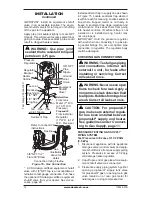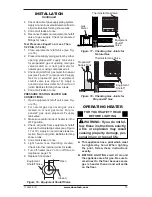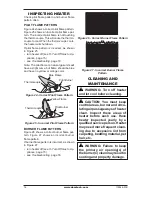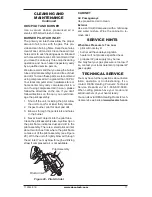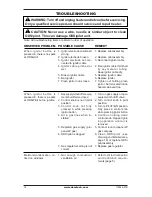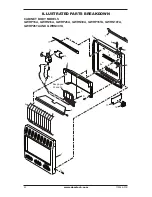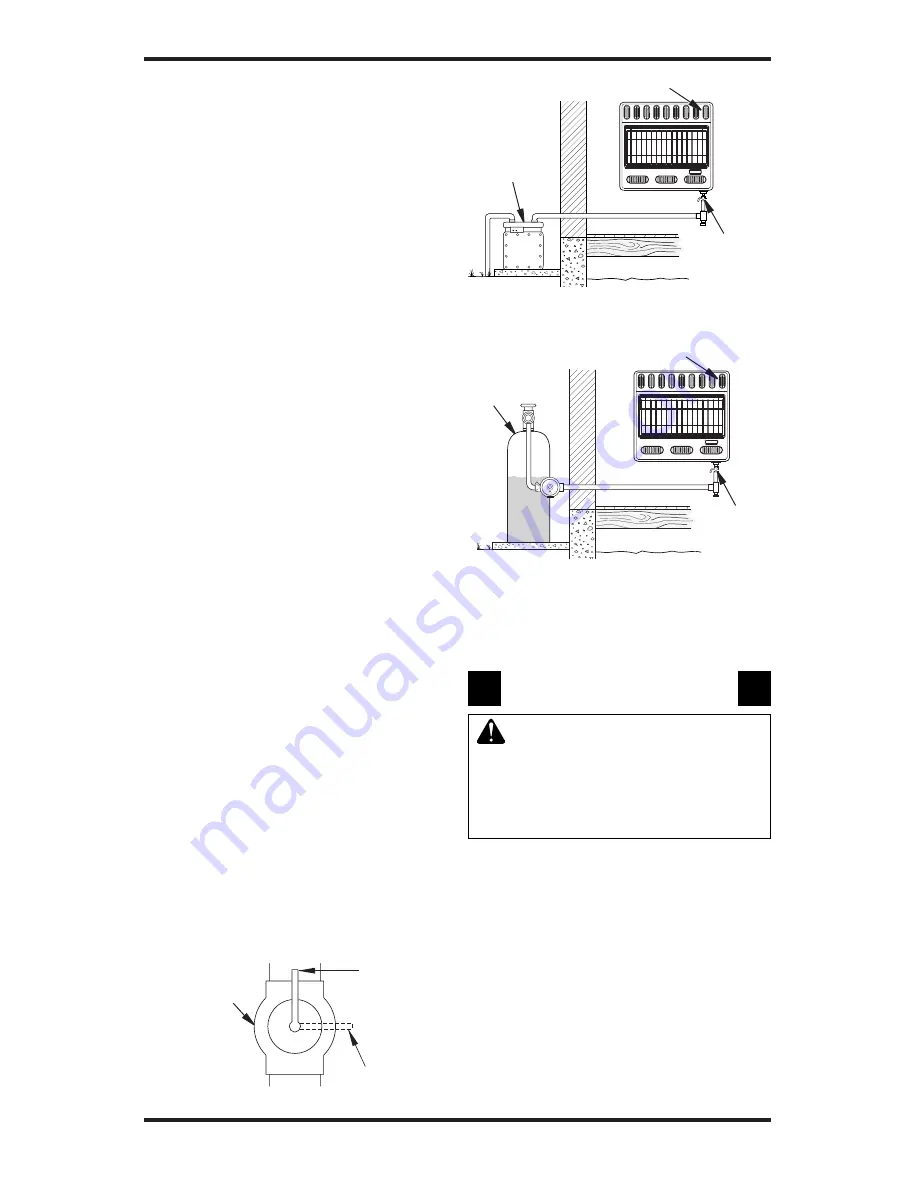
www.desatech.com
13
119346-01B
4. Check all joints of gas supply piping system.
Apply a noncorrosive leak detection fluid to
all joints. Bubbles forming show a leak.
5. Correct all leaks at once.
6. Reconnect heater and equipment shutoff
valve to gas supply. Check reconnected
fittings for leaks.
Test Pressures Equal To or Less Than
1/2 PSIG (3.5 kPa)
1. Close equipment shutoff valve (see Fig
-
ure 16).
2. Pressurize supply piping system by either
opening propane/LP supply tank valve
for propane/LP gas or opening main gas
valve located on or near gas meter for
natural gas or using compressed air.
3. Check all joints from gas meter for natural
gas (see Figure 17) or propane/LP supply
tank for propane/LP gas, to equipment
shutoff valve (see Figure 18). Apply a
noncorrosive leak detection fluid to all
joints. Bubbles forming show a leak.
4. Correct all leaks at once.
PRESSURE TESTING HEATER GAS
CONNECTIONS
1. Open equipment shutoff valve (see Fig
-
ure 16).
2. For natural gas open main gas valve
located on or near gas meter. For pro
-
pane/LP gas open propane/LP supply
tank valve.
3. Make sure control knob of heater is in the
OFF position.
4. Check all joints from equipment shutoff
valve to thermostat gas valve (see Figure
17 or 18). Apply a noncorrosive leak de
-
tection fluid to all joints. Bubbles forming
show a leak.
5. Correct all leaks at once.
6. Light heater (see
Operating Heater
).
Check all other internal joints for leaks.
7. Turn off heater (see
To Turn Off Gas to
Appliance
, page 15).
8. Replace front panel.
Figure 18 - Checking Gas Joints for
Propane/LP Gas
Figure 16 - Equipment Shutoff Valve
Equipment
Shutoff
Valve
Propane/LP
Supply Tank
Thermostat Gas Valve
Open
Closed
Equipment
Shutoff Valve
Figure 17 - Checking Gas Joints for
Natural Gas
Equipment
Shutoff
Valve
Gas
Meter
Thermostat Gas Valve
INSTALLATION
Continued
OPERATING HEATER
FOR YOUR SAFETY READ
BEFORE LIGHTING
WARNING: If you do not fol-
low these instructions exactly,
a fire or explosion may result
causing property damage, per-
sonal injury or loss of life.
A. This appliance has a pilot which must
be lighted by hand. When lighting
the pilot, follow these instructions
exactly.
B. BEFORE LIGHTING smell all around
the appliance area for gas. Be sure to
smell next to the floor because some
gas is heavier than air and will settle
on the floor.


